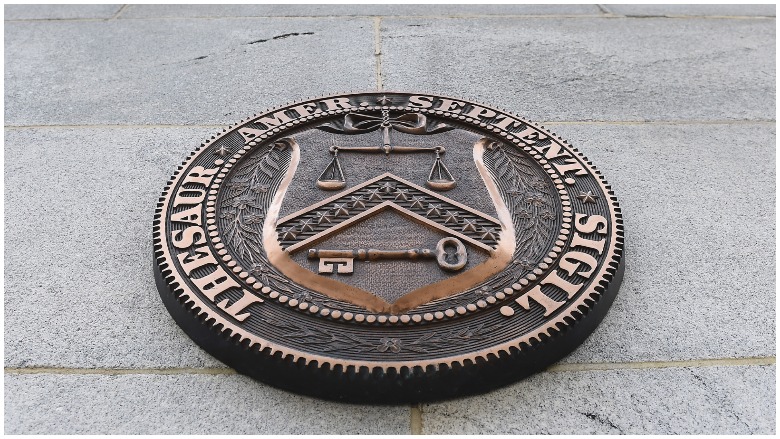
A judge’s ruling on two inmates’ California class-action lawsuit means that people who are incarcerated will now be able to claim their stimulus checks from the Internal Revenue Service (IRS), The Detroit Free Press reported.
The ruling ended a confusing, shifting set of practices from the IRS and could mean that incarcerated people would be eligible for the next round of stimulus checks, according to CNET.
The Detroit Free Press reported that the lawsuit could have implications for 1.5 million people across the country.
The deadline to claim these checks, originally set for November 4, is now November 21.
The Trump Administration Initially Sent Prisoners $100 Million Worth of Checks Before Changing Course
The Washington Post noted that initially, incarcerated people were able to receive the $1,200 individual checks provided through the CARES Act. The Los Angeles Times reported that 85,000 prisoners received $100 million in stimulus checks.
However, that changed.
The LA Times reported that in May, the IRS inspector general directed the agency to stop sending the checks to prisoners. According to The LA Times, “The IRS subsequently created an internal policy banning payments to prisoners and instructed those who had already received the money to return it.”
The IRS then released advice to withhold checks from people who were incarcerated on May 6, 2020, which was quoted in a District Court document:
A payment made to someone who is incarcerated should be returned to the IRS by following the instructions about repayments … For a Payment made with respect to a joint return where only one spouse is incarcerated, you only need to return the portion of the Payment made on account of the incarcerated spouse.
Moreover, the IRS told prison staff to return any checks received at correctional facilities to ensure mail already sent out would not reach those in prison, the LA Times reported. Shortly after that, two inmates filed suit and were supported by law firms and criminal justice reform group such as the Equal Justice Society.
A Judge in California Ruled That Withholding Checks From Those in Prison Was ‘Arbitrary’ and ‘Capricious’
The Los Angeles Times reported that Lisa Strawn, who was incarcerated at San Quentin State prison until July, filed a lawsuit against the government seeking stimulus check funds and Colin Scholl, who was incarcerated at Salinas Valley State prison, filed suit in August for the same reason.
Northern California District Court Judge Phyllis J. Hamilton treated the cases as a class-action lawsuit and found that their main argument — that there was no exclusive prohibition of inmates receiving checks so they should not be excluded by the agency — was true. Hamilton also rejected the government’s claim that excluding inmates was intended to reduce fraud. In the case’s holding, Hamilton wrote the following:
The court’s prior order determined that plaintiffs were likely to succeed on the merits because defendants had not directed the court to any evidence indicating that the Treasury Department or the IRS gave any reason for the decision to exclude payments to incarcerated individuals, much less an adequate one. In sum, the court reaffirms its prior finding that defendants’ policy of excluding incarcerated individuals from receiving an EIP solely on the basis of their incarcerated status is arbitrary and capricious.
The IRS was then sent a notice which ordered the agency to resume distributing the funds and provide information around how to do so, as The Washington Post reported.
Because of Hamilton’s ruling, incarcerated people could be eligible for stimulus checks if there’s another round of coronavirus relief that does not explicitly exclude them.
To receive the stimulus check funds from the CARES Act, prisoners will need to submit the claim form included in this IRS document. More information about the process is available at https://caresactprisoncase.org/.
According to a Prison Policy Institute article, annual commissary costs (ending in 2016 and 2017) averaged out at around $975 per inmate, more than 75% of a $1,200 stimulus check (commissary costs were $1,121 in Illinois, $1,207 in Massachusetts and $513 in Washington). The author of that article also noted that because of the commissary prices in many prisons, buying “essential goods, like food and hygiene products” can cost as much as someone’s prison wages for a day.
In a statement quoted by The LA Times, Scholl said, “the order communicates that we have value, that we have rights, and that itself is a win. All of us are hurting during the pandemic, like our friends and family on the outside.”
READ NEXT: Study Suggests People with Type-O Blood Have Less COVID-19 Infections
